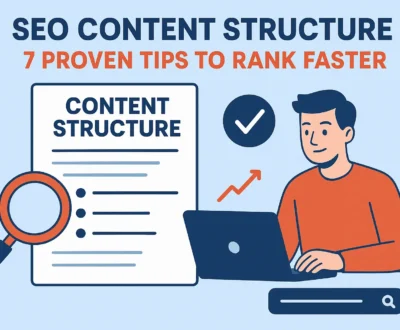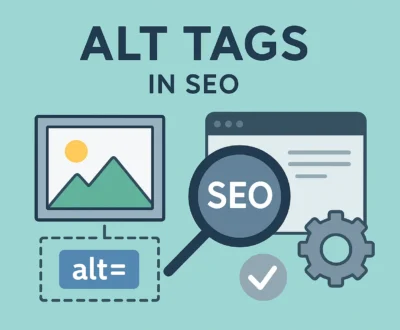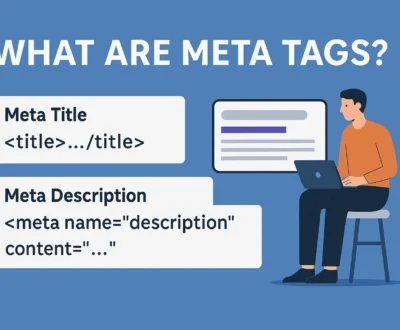Technical SEO: A Complete Guide to Boosting Website Performance
- November 9, 2025
- Digital Marketing, Search Engine Optimization(SEO), Technical SEO
When it comes to SEO, content and backlinks often steal the spotlight. But behind every top-ranking website lies a strong technical foundation also and that’s what technical SEO is all about. Without it, even the best-written content and powerful backlinks won’t get your site to the top of Google search results.
In this blog, we’ll break down what is technical SEO, why it’s so important, what it includes, and how you can perform effective technical SEO optimization to give your website the performance it deserves.
What Is Technical SEO?
As we have seen in our what is seo blog, technical SEO is the process of optimizing your website’s infrastructure so search engines can easily crawl, index, and understand your content. It’s the behind-the-scenes work that ensures your site loads quickly, functions properly on all devices, and is free from errors that can hurt your search rankings.
In simple terms, if on-page SEO focuses on what users see, and off-page SEO focuses on your site’s authority, then technical SEO focuses on how search engines experience your website.
A technically sound website helps Google’s crawlers find, read, and rank your pages more efficiently, leading to better visibility and higher rankings.
Why Is Technical SEO Important?
Imagine writing the best article in the world, but Google can’t access it because of broken links or a slow server. That’s what happens when technical SEO is ignored.
Strong technical SEO optimization helps in:
- Ensuring your website is easily crawlable and indexable
- Improving site speed and user experience
- Preventing duplicate content and crawl errors
- Making your site mobile-friendly
- Strengthening your overall SEO performance
Moreover, you can check out PageSpeed Insights to understand the technical lags in your website and improve them. Optimizing for technical SEO ensures that your site works perfectly for both users and search engines.
What Does Technical SEO Include?
You might wonder, “What does technical SEO include?” The answer covers several key aspects of your website’s performance, structure, and security. Let’s go over the most important elements.
Website Crawling and Indexing
Search engines use bots (called crawlers or spiders) to explore your site and understand your pages. Technical SEO analysis ensures that these crawlers can access all your important pages. You can implement the following strategies to ensure your website gets crawled easily:
- Use an updated XML sitemap to guide crawlers.
- Check your robots.txt file to avoid accidentally blocking pages.
- Make sure your important pages are indexable and not tagged with no-index in robots.txt
Website Speed and Performance
Page speed is a crucial Google ranking factor. A slow website frustrates users and lowers your SEO score. You can optimize the following for top-notch website performance:
- Compress images and use modern formats like WebP.
- Enable browser caching and use a Content Delivery Network (CDN).
- Minimize JavaScript and CSS files.
Mobile-Friendliness
Google uses mobile-first indexing, meaning it primarily evaluates the mobile version of your site. Your website must look and perform well on smartphones and tablets. Work on the following to optimize for this:
- Use responsive design.
- Test your site with Google’s Mobile-Friendly Test tool.
- Avoid intrusive pop-ups on mobile.
Secure HTTPS Connection
Security is another key part of technical SEO optimization. Websites using HTTPS are preferred by search engines and users alike. Work on the following:
- Install an SSL certificate.
- Make sure all internal links point to the HTTPS version of your pages.
Fixing Broken Links and Redirects
Broken links create a bad user experience and waste crawl budget. Regular technical SEO analysis can help you identify the following and fix broken links and redirects:
- 404 (page not found) errors
- Incorrect redirects (use 301 for permanent moves)
- Orphan pages (pages with no internal links pointing to them)
Structured Data and Schema Markup
Adding structured data helps search engines better understand your content. It can also improve how your site appears in search results with rich snippets (like ratings, prices, or FAQs).
- Use schema.org markup for products, articles, and events.
- Validate your markup using Google’s Rich Results Test tool.
Canonicalization and Duplicate Content
Duplicate content confuses search engines. Canonical tags tell Google which version of a page is the “main” one. This prevents dilution of ranking signals.
XML Sitemaps and URL Structure
A clean, logical URL structure helps both users and search engines. It is best to:
- Keep URLs short and descriptive
- Submit your XML sitemap to Google Search Console
- Avoid unnecessary parameters in URLs
Technical SEO Analysis and Tools
Performing a technical SEO analysis is essential to find and fix hidden issues. You can use tools such as:
- Google Search Console for indexing and performance insights.
- Screaming Frog crawls your site and identifies broken links or missing tags.
- PageSpeed Insights to test page load time and Core Web Vitals.
- Ahrefs Site Audit or Semrush for comprehensive, advanced technical SEO audits.
Regularly running these audits helps keep your website healthy and optimized.
Advanced Technical SEO Tips
Once you’ve mastered the basics, you can explore advanced technical SEO strategies to gain a competitive edge:
- Implement Core Web Vitals improvements for better UX.
- Use lazy loading for images and videos.
- Optimize your site for voice search with conversational keywords.
- Implement hreflang tags for multilingual websites.
- Set up log file analysis to understand crawler behavior.
These advanced methods ensure your website is not just technically sound but future-ready.
So, what is technical SEO really about? It’s the foundation of your entire SEO strategy. Without it, your content and backlinks can’t perform at their best. By focusing on technical SEO optimization, you can improve site speed, structure, and crawlability. Moreover, you help search engines understand your site better and reward it with higher rankings.
Perform regular technical SEO analysis, stay updated with advanced technical SEO trends, and ensure your site’s backend is as strong as its content. Because great SEO starts with great technical health. Check out our technical SEO checklist here or avail our SEO services.
Priyanka is a long form content writer with experience of over 5 years. She has worked in multiple industries including real estate, ecommerce services and products, hospitality, business formation, and more. In her free time, she loves to read books, click photographs, and listen to podcasts.
About us and this blog
We are a digital marketing company with a focus on helping our customers achieve great results across several key areas.
Request a free quote
We offer professional SEO services that help websites increase their organic search score drastically in order to compete for the highest rankings even when it comes to highly competitive keywords.
Subscribe to our newsletter!
More from our blog
See all postsRecent Posts
- How to Submit Website to Bing: A Complete Beginner’s Guide January 4, 2026
- What is a Title Tag? A Complete Guide for Beginners December 7, 2025
- SEO Content Structure: Tips to Rank Faster November 30, 2025










